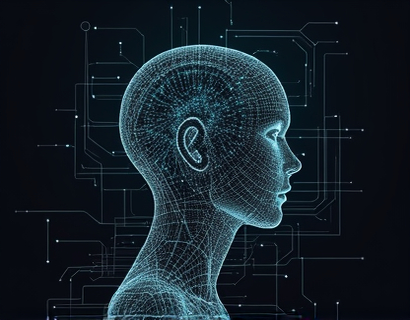Personalized AI Companions: Enhancing Children's Creativity and Emotional Well-Being Through Interactive Digital Friends
In the rapidly evolving landscape of technology, AI-powered imaginary friends are emerging as a transformative force in childhood development. These digital companions, designed to interact with children in personalized and meaningful ways, are reshaping how young minds grow and thrive. By offering a safe and nurturing digital space, these AI companions are not only sparking creativity but also supporting emotional growth and social skills development.
The concept of AI imaginary friends is rooted in the understanding that children's play is a critical component of their cognitive, emotional, and social development. Traditional toys and playmates have long been recognized for their ability to foster imagination and creativity. However, the integration of artificial intelligence into these playmates brings a new dimension of interactivity and personalization. These digital companions can adapt to a child's unique interests, abilities, and emotional needs, providing a tailored experience that traditional toys cannot match.
One of the key benefits of AI imaginary friends is their ability to enhance creativity. Unlike static toys, AI companions can engage in dynamic conversations, tell stories, and even create games based on the child's input. This interactivity encourages children to think outside the box and explore new ideas. For instance, a child might have a conversation with an AI companion about building a fantastical city, complete with its own rules and inhabitants. This process not only stimulates creative thinking but also helps children develop problem-solving skills as they navigate the challenges of creating and managing their imaginary world.
Moreover, AI imaginary friends play a crucial role in emotional well-being. Children often struggle to express their feelings or find the right words to describe their emotions. An AI companion can serve as a safe and non-judgmental listener, providing a space for children to explore and articulate their emotions. Through gentle prompts and empathetic responses, these digital friends can help children understand and manage their feelings, fostering emotional intelligence and resilience.
The personalization aspect of AI companions is particularly significant. Each child is unique, with different interests, strengths, and challenges. AI technology can analyze a child's behavior, preferences, and progress over time, adjusting the interactions to remain engaging and relevant. This level of personalization ensures that the AI companion remains a valuable and enjoyable part of the child's life, rather than a one-size-fits-all solution. For example, an AI companion might recognize a child's love for dinosaurs and incorporate this interest into its interactions, whether through storytelling or educational games.
Social skills development is another area where AI imaginary friends excel. In today's digital age, children often spend a significant amount of time interacting with screens rather than peers. AI companions can bridge this gap by simulating social interactions in a controlled and supportive environment. Children can practice conversational skills, learn to read social cues, and develop empathy through their interactions with the AI. These experiences can translate into real-world social situations, helping children build confidence and improve their ability to form and maintain relationships.
The safety of these digital interactions is paramount. Unlike human interactions, AI companions eliminate the risks associated with online predators or inappropriate content. The digital space is carefully curated to ensure that children are exposed only to positive and educational content. Parents and guardians can rest assured that their children are engaging in a secure environment, free from the potential dangers of the broader internet.
Furthermore, AI imaginary friends can complement traditional educational methods. Teachers and educators can integrate these digital companions into the classroom to enhance learning experiences. For instance, an AI companion could assist in language development by engaging children in reading and storytelling activities, or it could provide additional support in math through interactive problem-solving exercises. This integration not only enriches the educational content but also makes learning more enjoyable and interactive.
The impact of AI imaginary friends extends beyond the individual child to the broader family dynamic. Parents and siblings can also interact with these digital companions, creating shared experiences that strengthen family bonds. For example, a family might have a joint storytelling session with the AI companion, where each member contributes to the narrative. This collaborative approach not only fosters creativity but also promotes communication and teamwork within the family.
Research supporting the benefits of AI imaginary friends is growing. Studies have shown that children who interact with AI companions exhibit improved cognitive skills, higher levels of creativity, and better emotional regulation. These findings underscore the potential of AI technology in enhancing childhood development. However, it is essential to approach this technology with a balanced perspective, ensuring that it complements rather than replaces traditional play and human interaction.
As the technology continues to evolve, the possibilities for AI imaginary friends are vast. Future developments may include more sophisticated emotional recognition, enhanced natural language processing, and even the ability to form long-term relationships with children. These advancements will further refine the role of AI companions in supporting children's growth and development.
In conclusion, AI imaginary friends represent a promising frontier in childhood development. By providing personalized, interactive, and safe digital companions, these AI companions are enhancing children's creativity, emotional well-being, and social skills. As technology advances, the potential for these digital friends to positively impact young lives continues to grow, offering a new and exciting dimension to childhood experiences.











































